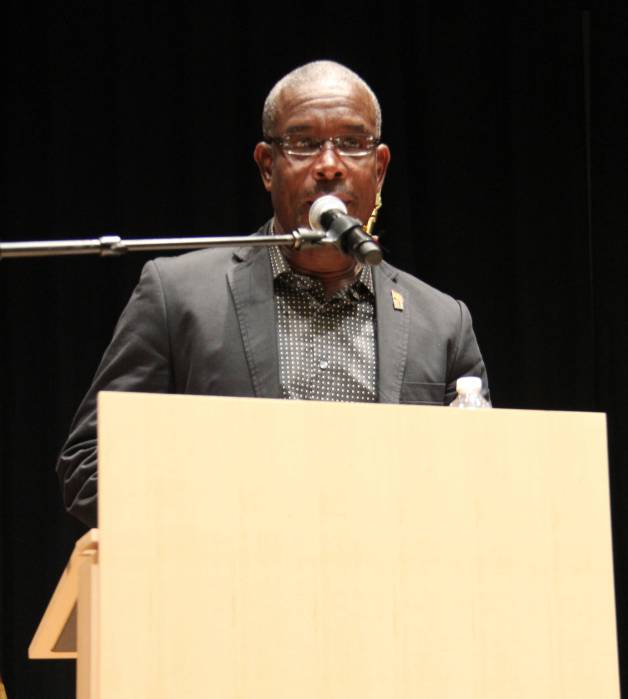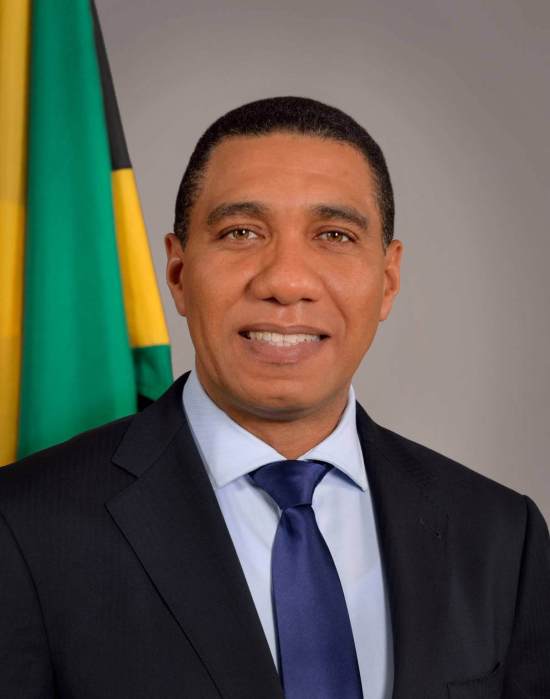The chairman of the Caribbean Community (CARICOM), Grenada’s Prime Minister Dr. Keith Mitchell, says there is no doubt that 2017 has been “a most eventful year for CARICOM.”
“We experienced a scale of multi-country devastation never before seen in the region as two Category 5 Hurricanes, Irma and Maria, raged through the Caribbean within two weeks,” said Mitchell in CARICOM’s end-of-year message. “The governments and people of our community immediately responded to assist their brothers and sisters with the generosity and spirit of togetherness which is our trademark.
“I, therefore, must pay tribute to those who so willingly extended a helping hand in the hour of need of our brothers and sisters in the stricken countries,” he added. “Even before the hurricane season was over, the resilient people that we are, we had begun to rally. We determined that we could use the rebuilding process to become the first climate resilient region in the world.”
Recognizing that the region did not have the resources to achieve that goal on its own, the CARICOM chair said the region sought the assistance of the international community.
First, in collaboration with the United Nations Development Program (UNDP), he said the region organized the CARICOM-UN High Level Pledging Conference, “Building a More Climate-Resilient Community,” which was held in November at the UN Headquarters in New York.
It brought together nearly 400 high-level representatives from governments, multilateral and civil society organizations and the private sector, and raised more than US$1.3 billion in pledges and over $1 billion in loans and debt relief, Mitchell said.
In early December, at the One Planet Summit in Paris, he noted that a Caribbean Climate-Smart Coalition was launched in partnership with British millionaire Sir Richard Branson.
The Caribbean Climate-Smart Coalition seeks rapid implementation of a $8 billion climate investment plan that will transform the regional energy system, build resilience, drive economic growth “and set us on the road to being a climate resilient region,” Mitchell said.
He said key areas for the initiative are: resilient housing and shelter; renewable energy; tourism and the Blue Economy; physical Iifrastructure; government systems and security; food security and climate-smart agriculture; and human capacity development.
Mitchell said there has been “a tremendous international response” to the Caribbean Climate-Smart Coalition, stating that the private sector, the Inter-American Development Bank (IDB), the World Bank and the United Nations Development Program (UNDP) “have also played key roles as core partners of this initiative.”
In addition, he said the Green Climate Fund and The Nature Conservancy “have also come forward with support.”
“We anticipate starting implementation across the Caribbean in the New Year, while there is ongoing emergency work already being carried out in the affected countries,” Mitchell said. “Together, we can build thriving economies fueled by clean energy, nature-based resilient design and innovation.”
Mitchell said the region has been “moving ahead in other areas as well.”
He said Heads of Government welcomed and approved the Human Resource Development 2030 Strategy, as well as the Roadmap for a Single ICT Space.
“This would enhance the environment for investment and production, provide an opportunity for innovation to flourish, support a sustainable increase in growth and jobs, enhance efficiency in, and increase access to public services,” he said.
In addition, Mitchell said there has also been progress in efforts to enhance the safety and security of Caribbean people.
He said several member states signed the CARICOM Arrest Warrant Treaty, which simplifies the procedure of returning fugitives to the country where charges have been laid.
An expansion of the Advance Passenger Information System and planned introduction of the Advance Cargo Information System also signify the importance attached to the issue of security, Mitchell said.
During the year, he said the region “also took a hard look at the CARICOM Single Market and Economy (CSME) and approved an Implementation Plan for 2017-2019 to accelerate the use of the measures under the regime.
“A lot has been achieved in implementing the CSME, including legal and institutional measures and mechanisms to support the free movement of goods, services, skills, and cross-border establishment of businesses,” Mitchell said. “However, we will continue to review progress regularly to ensure that the benefits of this important aspect of our integration are accruing to our citizens.”
The CARICOM chairman said one of the most important drivers of the Community’s economy, tourism, received special attention, “as we sought to address both immediate and long-term initiatives aimed at stimulating sustainable growth in tourism.
“We focused on marketing strategies and agreed to support various public-private sector initiatives, which would entail engagement with other Caribbean countries, companies and multilateral organizations,” he said.
Mitchell said engagements at the highest level with the presidents of Mexico and Cuba enabled CARICOM to solidify those relationships, resulting in “increased strands of co-operation, particularly in disaster risk management.
“This is a particularly important area for us, given the predicted rise in the intensity and frequency of climatic events for our region,” he said.
Mitchell said lessons learned from this year’s experiences will serve the region well, “as we go forward in the era of the ‘new normal.’
“We have proven that we can withstand the slings and arrows of misfortune and bounce back stronger than ever,” he said. “Let us continue to band together and ensure that we build a resilient Caribbean Community for the benefit of our children and grandchildren.”



























